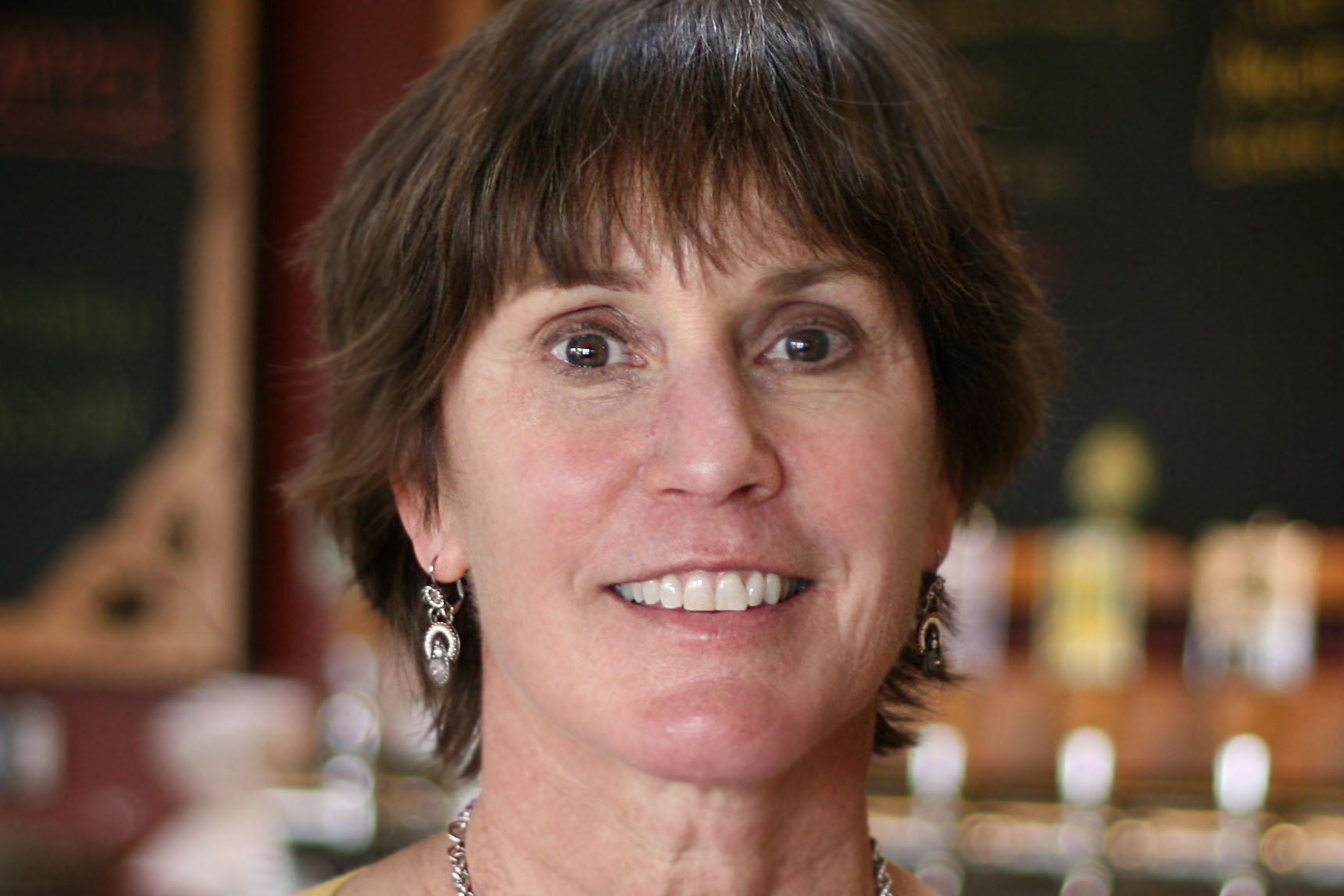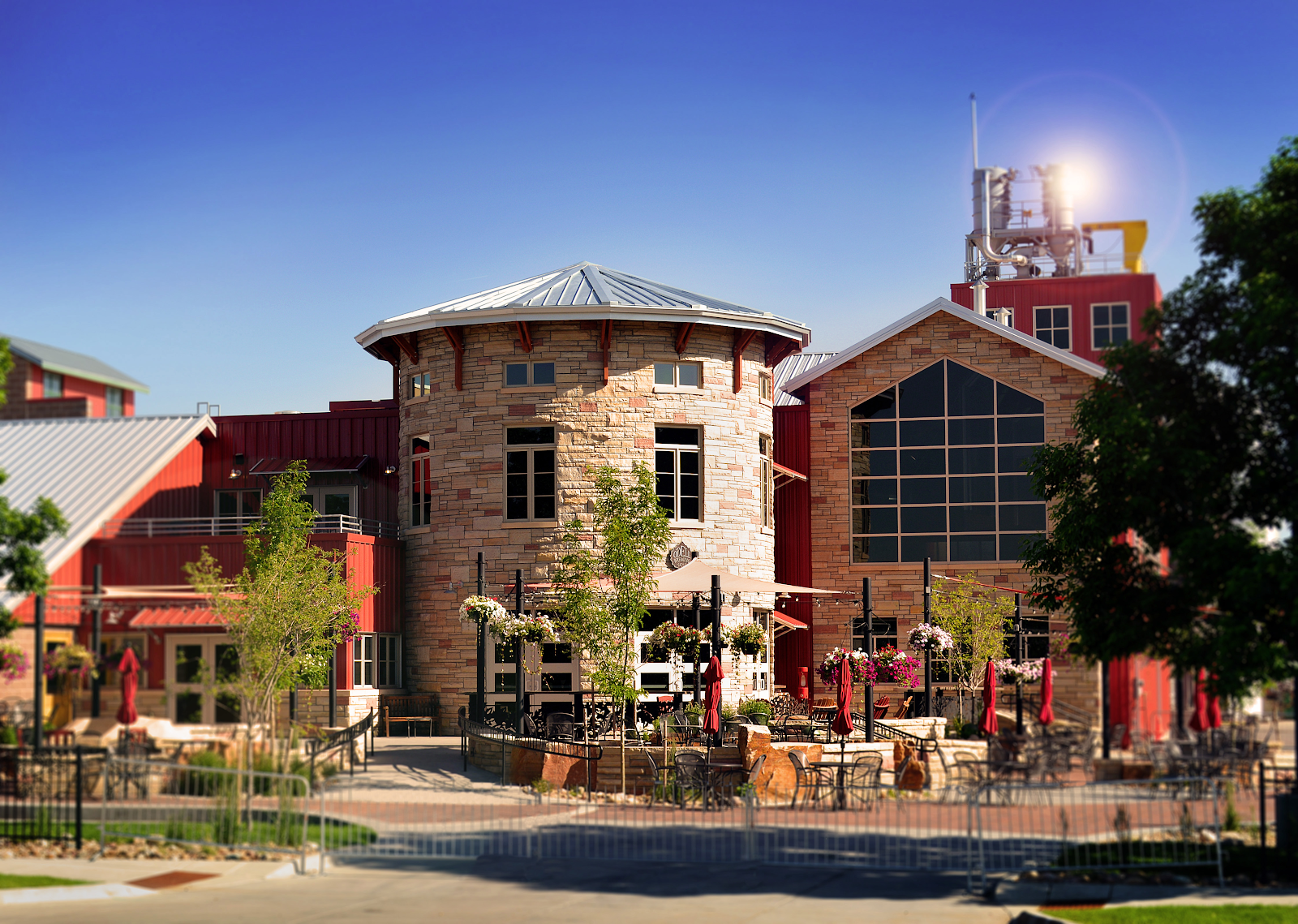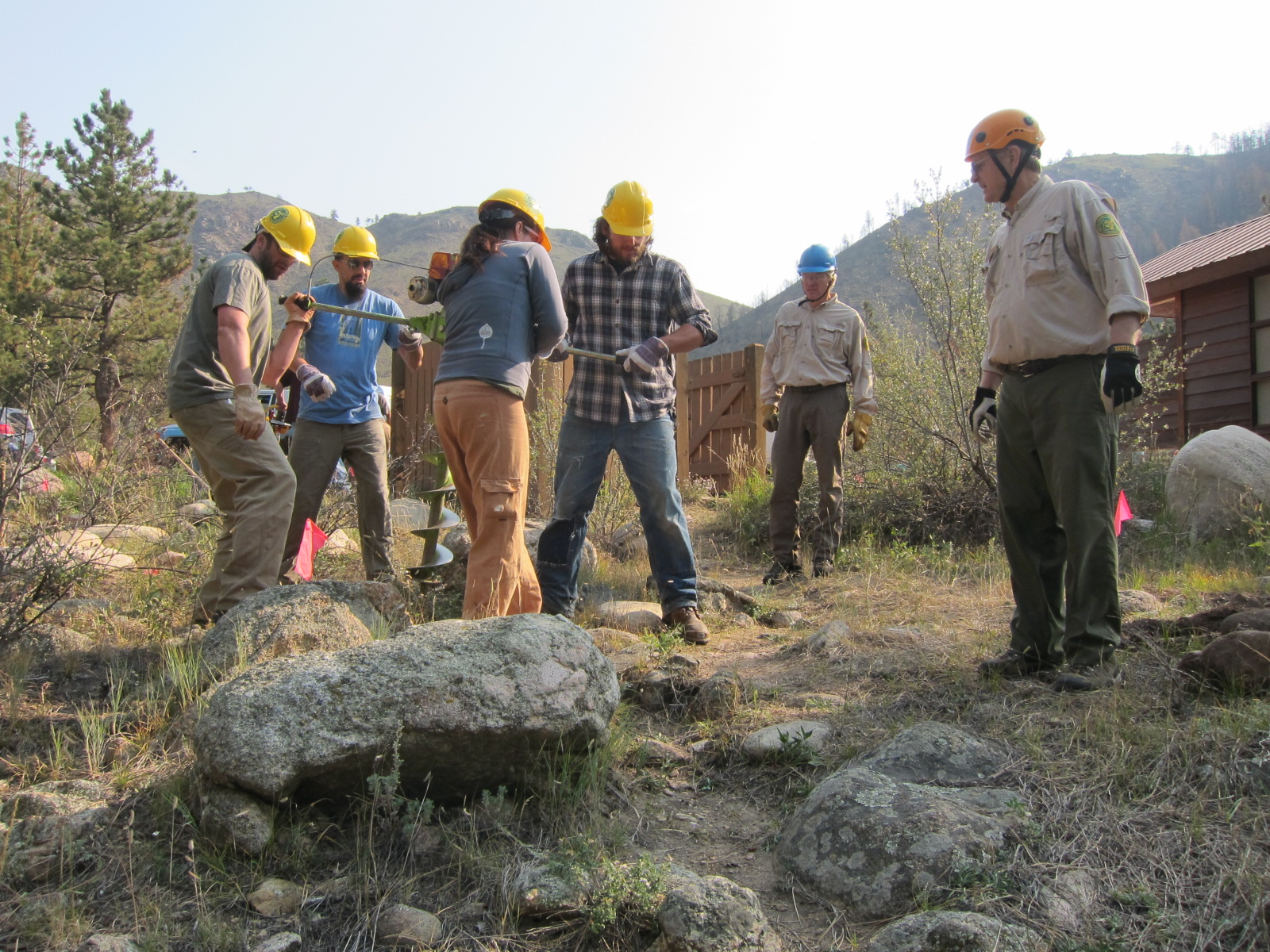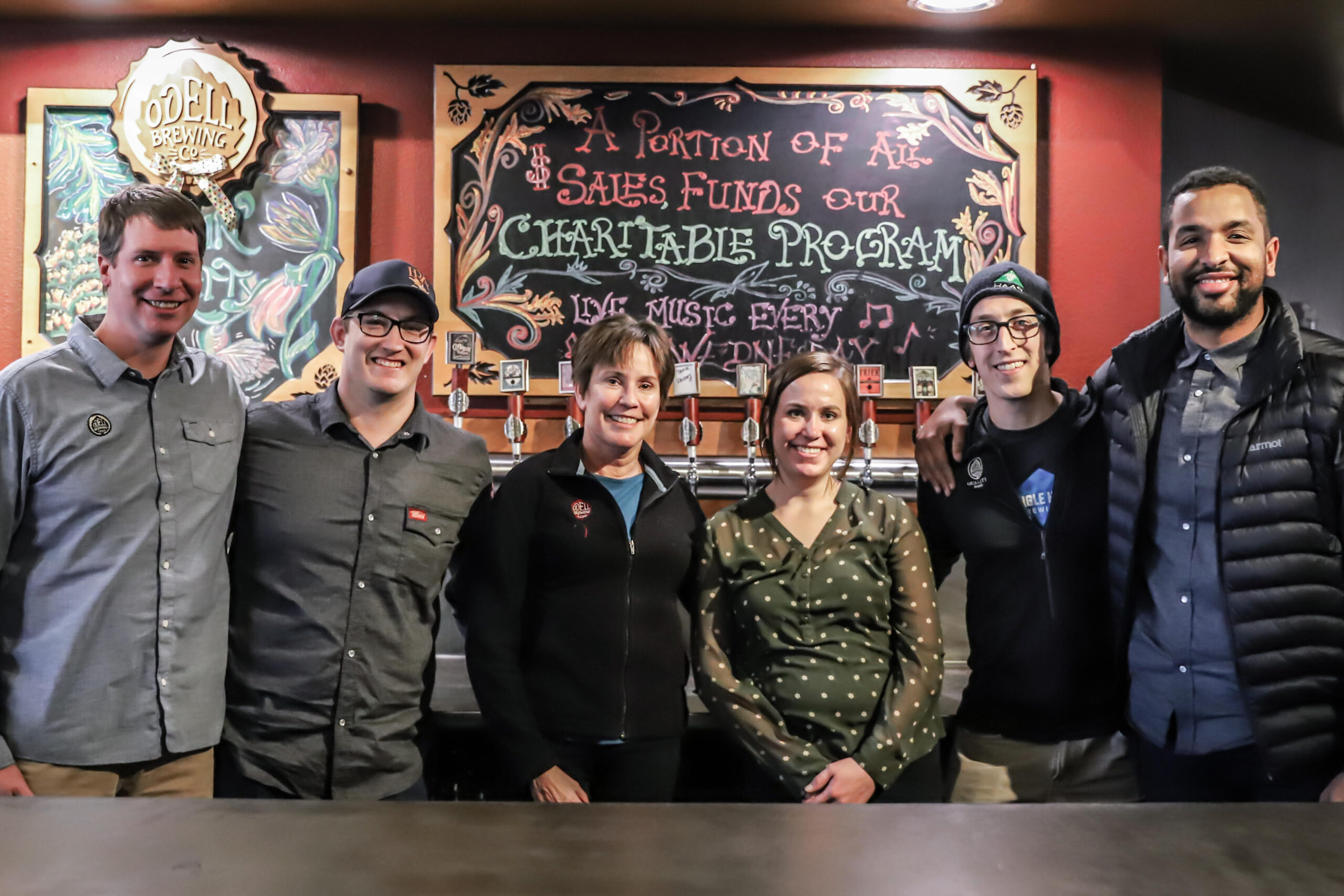Photo courtesy of Odell Brewing Co.
Nancy Kepner, CEO of Crafted Leadership conducted an interview with Wynne Odell, the CEO and co-founder of Odell Brewery on June 22, 2018 in the tasting room of Odell Brewing Company in Fort Collins, CO.
Together with her husband, Doug, and her sister-in-law Corkie, Wynne co-founded Odell Brewing Co. in 1989 and grew it to the 22nd largest craft brewery in the U.S. In 2015, the family founders sold the majority of the company to its co-workers in a combined management buyout and employee stock ownership plan.
This section of the interview focuses on Odell’s philosophy on growth, values, and community involvement.

Wynne Odell. Photo courtesy of Odell Brewing Co.
Question: Why is collaboration and community so important to you, and what impact does it bring?
Wynne: I think it comes from having a long-term view of why we are here and what we are doing. It’s never been our goal to be the biggest, the fastest, the most outrageous whatever. It’s just to do something we love, do a really good job of it, and be able to share it with our customers, with our community, and allow the people who work with us to be engaged in meaningful, purposeful work, and be connected with their co-workers.
I refer to our company as an organism a lot when I’m talking internally. The idea is that it’s living and breathing. Our purpose is not just to grow.
I was at a conference not long ago and one of the speakers was talking about how he’d helped grow the company and they had a goal every year to grow 10%, to grow 15%, and to put everything in place to make sure they grow.
We have growth goals, but that’s not the focus of what we do. The focus of what we do is to create high-quality beer, to engage our consumers with that beer and with who we are, to have our co-workers feel connected to what they are doing and be involved in meaningful work, and to contribute to our community. It’s more about how we live our life rather than how we run our company.
We’re not ignoring the business piece of it, we have our budget and we know what we need to achieve, and if we’re not achieving it (which is where we are right now) we take steps to make sure we get there.
Odell Brewing Co. places an emphasis on community engagement. Employees regularly support community service projects and proceeds from various taproom initiatives support local organizations. Photo courtesy of Odell Brewing Co.
Question: So, growth and profit are a means to the end, but the end is: the high quality beer, the engaged consumers, the feeling of connection and purpose in work, the contribution to community.
Wynne: Yes
Question: Sometimes there’s a lip-service made to values that isn’t matched in the daily experience of people working at a company. It sounds like they are here.
Wynne: I truly believe they are. We’re just not grow-it-at-all-costs people. I don’t, frankly, understand why companies do that. It’s one of those “enough is enough” things. We are, honestly, successful. We’re the 22nd largest independent craft brewery in the country. So, obviously, something is right. I think what is right is that we are focusing on the fabric rather than on the specific outcome.
I don’t want to discount the fact that we do know what our outcome is intended to be and we are very purposeful about how we get there, but we wouldn’t blow up what we have to make sure we have 10% growth. We wouldn’t care if it was 10% growth or 2% growth as long as it meets our business needs and meets the needs of our people.
In addition to community engagement, Odell Brewing Co. places a large emphasis on sustainable business practices. Photo courtesy of Odell Brewing Co.
Question: John Mackey (Whole Foods CEO) says profit is like red blood cells. We need them to live, but we don’t live in order to generate profit or red blood cells. Yours is another example of an organization who has got the formula, I would say, right.
Wynne: It seems to be working.
Wynne Odell (center left) with Odell team members. In 2015, Odell Brewing became an Employee Stock Ownership Plan company, helping further foster a sense of inclusivity and employee investment. Photo courtesy of Odell Brewing Co.
Question: How do you foster an inclusive work environment and embrace differences, and is that important to you? What’s the impact of having an inclusive work environment?
Wynne: It’s enormously important.
The way we have structured our company is we have an executive team. Then we have a team of people who we call Team Leaders. These are the people who directly manage the major teams in the company. Their goal (their purpose), in addition to managing all of our logistics, is to promote the health of the cultural people-fabric of the company…to make sure that within their teams, closeness and inclusiveness are there.
We put a lot of emphasis on the value of the teams. The leader’s role is to not only make sure we get the work done, but to ensure that the people who are doing it are feeling connected to what they are doing and feel taken care of.
Question: I want to follow up on the inclusiveness because, again, it’s one of those things that can be done in name only or with lip service. I suspect some people don’t feel it’s really that important.
Wynne: You are talking about inclusiveness, having people feel connected?
Question: Yes, I’m using it in the sense that people can bring their whole selves to work. Knowing that their differences are embraced. Do you see that this value of connectedness and inclusiveness has an impact either on your bottom line or on retention?
Wynne: It definitely helps the bottom line. I’m thinking two months ago on our packaging line. The folks who are working the 8 p.m.-4 a.m. shift, the line goes pretty darn fast, and there are five of them standing there, it’s the middle of the night, and it’s very repetitive, loud, dirty work. One of them noticed a bottle go through that was clearly compromised. It didn’t have integrity. They all know the line, they all have the authority to shut it. So, this person went over and shut off the line, and everyone stops. They are all bummed because when you shut the line, the shift might end up lasting longer, but they looked and they realized the whole pallet of bottles was compromised. So, they stopped, they cleared out those bottles, they went back and checked everything that was there. They couldn’t finish their shift, but they made it so that when the next shift came in there were clean bottles ready to go.
They could have just let that go through. It didn’t impact what they were doing. It had negative consequences for them because it extended the amount of time they had to work, but they took ownership of it. They saw the problem, they got it done. That kind of thing, I think, is perfect evidence of inclusiveness. They understand they are not there just to punch a clock and get the work done. They are proud of what it is they are putting out. They feel responsible for what their work role is and feel a responsibility to their co-workers. That kind of stuff is really reaffirming.
We have quarterly meetings where everyone comes together. We celebrate those successes where people have really stepped up and done something different, and we monetize it.
Question: In terms of integrity, is that something you look for when you are hiring people?
Wynne: I’m not involved directly in the hiring process, except at the executive level. I don’t think integrity is a word we ever use. We may not consciously select for it, but it is a fundamental expectation.
We hire for attitude, rather than skill-set. We want someone who believes in this culture and wants to be a part of it rather than someone who is just willing to come and work alongside of us.
Other blogs from this interview touch on leadership and Odell’s committed approach to company culture, community, and growth. View Part 1: Owning Your Brilliance and Part 2: Leadership.




